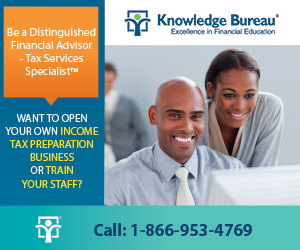Last updated: March 28 2017
CRA Wants a Share of the Sharing Economy

In the recent federal budget, the federal government continued its commitment to supporting and funding innovation to grow Canada’s economy and build a strong middle class. There is evidence all around us that technology is fueling new enterprises all over the globe, in what has become known as “the sharing economy.”
In this new business model, various communities pool, loan, and share their resources through networks of trust. Sounds revolutionary, but this way of consuming or accessing products and services has become the new normal:
- Ride sharing (think, Uber)
- Accommodation sharing (Airbnb)
- Music and video streaming (Spotify)
- Online staffing (Freelancer.com)
- Peer/crowd funding (gofundme)
As reported in Canadian Business, PwC estimates that the five sectors of the sharing economy are collectively worth US$15 billion globally, which puts Canada’s share in the range of “the low hundreds of millions or high tens of millions,” according to Sunil Johal of the Mowat Centre, a think-tank at the University of Toronto’s School of Public Policy and Governance.
Although its exact size is challenging to estimate, there is no doubt that the sharing economy is on the rise. Statistics Canada reported in February 2017 that some 2.7 million Canadian adults participated in the sharing economy between November 2015 and October 2016, spending about $1.31 billion in ride-sharing and accommodation services alone. As this kind of new economic activity becomes a larger part of the Canadian economy overall, it’s no surprise that the Canada Revenue Agency (CRA) wants a piece of this action as well.
You might be running a sharing economy business on the cutting edge of technology, but you are still subject to good old-fashioned tax rules. Like any other individual or organization operating a business, you must report all the income you earn through sharing-economy activities, and you must meet your GST/HST reporting and remittance obligations.
 |
The CRA is taking your tax obligations seriously and is cooperating with industry and the provinces and territories to identify and address areas of non-compliance with the tax system. Everyone wants a share of the sharing economy!
If you are realizing any revenue by participating in the sharing economy, take heed of the following rules—and the potentially serious consequences of not following them:
- The CRA will consider you part of the underground economy if you fail to report or underreport any sales or income you generate from your activities in the sharing-economy. If you get caught evading tax, not only will you have to pay any tax due from unreported activities, but you may also be subject to fines, penalties, or even jail time.
- If you are considered a “small supplier” (your GST/HST-eligible property and services total $30,000 or less a year), you do not have to register for a GST/HST account or remit the tax. (However, you can voluntarily register to take advantage of input tax credits and recover the GST/HST you pay on your own purchases and operating expenses. Visit the CRA website for more GST/HST information.)
- However, if your business activity results in sales or income over $30,000, then you are obligated to report and remit GST/HST. And if you do not, the CRA will charge you interest and/or penalties depending on the circumstances.
If you have been generating income from activity in the sharing economy and have not reported some or any of your income in previous years, you should correct your tax affairs as soon as possible to avoid or minimize fines, penalties, or worse from the CRA. There are several ways to do this and more information about each of them can be found on the CRA website:
- You can ask to change previous years’ income tax and benefit returns. See this link.
- You may qualify to use the Voluntary Disclosures Program.
- You can correct your GST/HST return.
Many participants in the sharing economy may feel that they are operating outside of the system, that they are anti-establishment, new economy entrepreneurs. If this is you, be aware that you are part of a growing sector in the general economy and, therefore, subject to the same tax rules and obligations as any other business.
Be sure to seek the services of a financial professional such as a DFA-Tax Services Specialist if you are unsure about what all of this means to you. The CRA wants their share of your sharing-economy income, and they are serious about getting it.
©2017 Knowledge Bureau Inc. All Rights Reserved.





